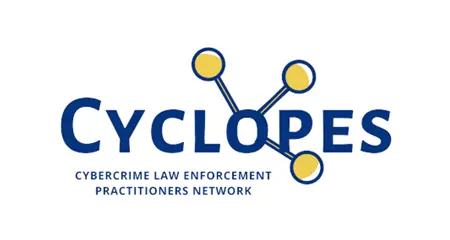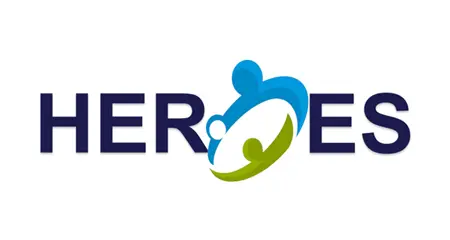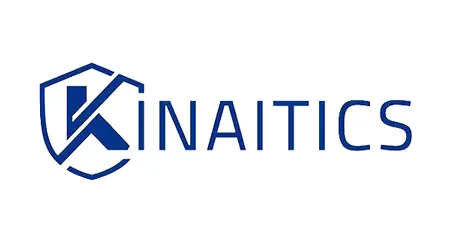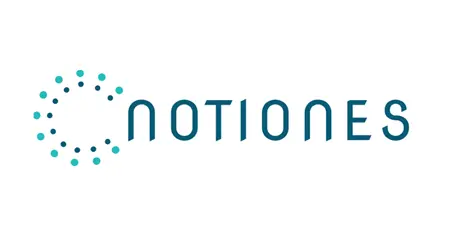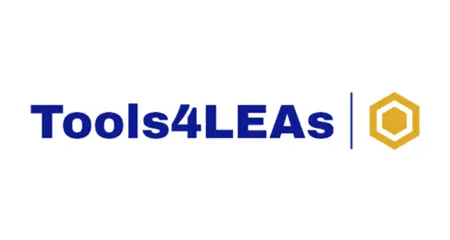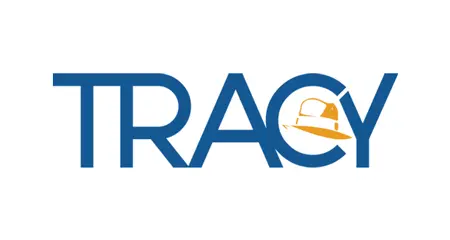LEA Projects Cluster

The Law Enforcement Agencies (LEA) Project Cluster is a collaborative platform led by Privanova, that unites EU-funded projects focusing on cybersecurity, law enforcement, anti-money laundering, and counter-terrorism. This initiative aims to foster synergy among various projects by sharing knowledge, resources, and best practices, thereby enhancing the collective capability to address the complexities of cybercrime and cybersecurity challenges.
Coordinator: Erkuden Rios Velasco – TECNALIA
AI4CYBER seeks to provide an Ecosystem Framework of next-generation trustworthy cybersecurity services that leverage AI and Big Data technologies to support system developers and operators in effectively managing robustness, resilience, and dynamic response against advanced and AI-powered cyberattacks.
Coordinator: Dr. Daniel Lückerath – FRAUNHOFER IAIS
The EU-funded ALIGNER project brings together European actors who have concerns about AI, law enforcement and policing to jointly identify and discuss how to improve Europe’s security, through which AI strengthens law enforcement agencies, delivering benefits to the public. Project work helps pave the way for an AI research roadmap.
Coordinator: David Wright – TRILATERAL RESEARCH
CC-DRIVER focuses on the human factors behind juvenile cyber-delinquency and adolescent hacking. The findings assist in the development of mitigation and deterrence strategies. By investigating ‘cybercrime-as-a-service’, the project designs policy templates for combatting online cybercrime and produces a youth self-assessment online metric tool.
Coordinator: Georgios Stavropoulos – CERTH
CEASEFIRE will develop a highly innovative, holistic, multi-disciplinary, high-tech, and versatile approach for aiding EU LEAs in their struggle to detect, analyze, and track cross-border illicit firearms trafficking. It will deliver relevant, advanced Artificial Intelligence (AI) tools and will establish fully operational National Focal Points (NFPs), aiming to increase LEA operational capabilities.
Coordinator: Raquel Pastor – ISDEFE
COPKIT is a three-year, EU-funded project that addresses the problem of analysing, preventing and investigating the use of ICTs by organised crime and terrorist groups. In this context, the project is developing a toolkit to support the Early Warning (EW)/Early Action (EA) methodology.
Coordinator: Catalin Trufin – ASSIST
The CounteR project will develop a tool for taking down quickly and accurately the terrorism content online, and, at the same time, preserve the privacy protection and data anonymization of the content. The CounteR solution’s ultimate goal is to provide law enforcement agencies (LEAs), Internet providers, and social media platforms with an early-warning tool.
Coordinator: Dr Holger Nitsch – BayHfoD
CYBERSPACE is a three-year project, funded through the European Commission’s Internal Security Fund Programme. Starting in December 2021, CYBERSPACE will provide the bigger picture regarding cybercrime in the European Union. By facilitating reporting of cyber-attacks, mapping response actions, and co-ordinating between LEAs, policy makers, and the private sector and across national borders.
Coordinator: Rashel Talukder – Polish Platform for Homeland Security
CYCLOPES is building and maintaining an innovation-driven network of law enforcement agencies (LEAs) combating cybercrime. We identify solutions and research activities that help tackle the complexity of cybercrime — whilst eliciting priorities for standardisation and recommendations for innovation implementation and increased uptake.
Coordinator: Dr Dimitrios Tzovaras – CERTH
DARLENE is a three-year EU-funded project investigating how cutting-edge augmented reality (AR) technology can be deployed to help LEAs and first responders make more informed and rapid decisions, especially in situations where time is of the essence. The project develops innovative augmented reality tools that aim to improve situational awareness when responding to criminal and terrorist activities.
Coordinator: Arundhuti Banerjee – FRAUNHOFER EMI
The EU-funded DYNAMO project will combine business continuity management and cyber threat intelligence to generate a situational awareness picture for decision support across the five resilience phases: prepare, prevent, protect, respond, and recover. The project will engage professionals of different backgrounds and end-users to develop, refine, and combine selected tools into a single platform.
Coordinator: Freddy Wilmer Rivas González – GMV
EMERITUS is an innovation project aimed at supporting Law Enforcement Authorities (LEA) and Border Guards (BG) in the investigation and evidence collection against waste-related environmental crimes. To this end, the project will offer a combined package of digital tools, including a single-entry point platform integrating advanced technologies, a training package, operative and train-the-trainers oriented, and an investigation protocol to guide LEAs and BGs in the integration of digital technologies in their daily operations.
Coordinator: Dr. Päivi Mattila – LAUREA
The project aims to enrich the existing European networks countering hybrid threats and ensuring long-term sustainability. This will be achieved by defining the common requirements of European practitioners and other relevant actors in the field. This can fill knowledge gaps, deal with performance needs, and enhance capabilities or research, innovation, and training endeavors concerning hybrid threats.
Coordinator: Helen Grantham – VICOMTECH
The growth in online child sexual exploitation and abuse material is a significant challenge for European law enforcement agencies. Referrals of CSEM exceed the capacity of LEAs to respond in a practical and timely manner. GRACE aims to equip European law enforcement agencies with advanced analytical and investigative capabilities to respond to the spread of online child sexual exploitation material.
Coordinator: Dr. Luis Javier García Villalba – UCM
HEROES encompasses three main components: Prevention, Investigation, and Victim Assistance. Through these components, HEROES’ solution aims to establish a coordinated contribution with LEAs by developing an appropriate, victim-centered approach that is capable of addressing specific needs and providing protection.
Coordinator: Dr. Ray Genoe – University College Dublin (UCD)
INSPECTr is a three-year project that will develop a shared intelligent platform and novel process for gathering, analysing, prioritising, and presenting key data to help in the prediction, detection and management of crime in support of multiple agencies at the local, national and international level.
Coordinator: Cédric Gouy-Pailler – CEA
KINAITICS aims to explore the new attack opportunities offered by the introduction of AI-based control and perceptive systems, as well as those offered by the combination of behavioral understanding of physical systems and cyber-attacks. On the defense side, we aim to offer an innovative spectrum of tools and methodologies, to combine behavioral monitoring and classical cybersecurity tools to protect against these new threats.
Coordinator: Pantelis Velanas – European University Cyprus (EUC)
The project will use gamification technologies to train police officers on procedures in a safe and controlled virtual environment in Greece, Spain, Lithuania, Romania, and Moldova. The project will introduce an attractive method to develop competencies required to perform AI-assisted intelligence analysis and illegal acts prediction.
Coordinator: Dr Constantinos Patsakis – ARC
LOCARD will automate the collection of digital evidence in any electronic format and medium by providing a unique platform for exchanging this evidence. Its goal is to provide a comprehensive management approach to handle digital evidence to be presented in a court of law, alleviating many issues of current art and practice.
Coordinator: Dimitris Kavallieros – Information Technologies Institute
MultiRATE project aims to support the European R&D community, EC-Chaired initiatives, CERIS, and European Commission Agencies with a Multi-disciplinary and holistic evaluation methodology and calculation which will measure the Readiness Level of the outputs of EU R&D projects. It will be built on seven main Readiness Level domains: Technology RL, Societal RL, Security RL, Legal, Privacy and Ethics RL, Integration RL, Commercialisation RL, and Manufacturing RL.
Coordinator: Olatz Ibanez Otazua – TECNALIA
NOTIONES project addresses the danger of rising cybercrime by building a network of practitioners from security and intelligence services. It brings together 29 partners, practitioners from military, civil, financial, judiciary, local, national, and international security and intelligence services from 9 EU Member States and 6 Associated Countries.
Coordinator: Dr. Nikolai Stoianov – Bulgarian Defence Institute (BDI)
The EU-funded ODYSSEUS project develops effective and efficient prognostic, detection and forensic tools to improve prevention, countering and investigation of terrorist incidents involving homemade explosives. The knowledge helps in the development of tools for monitoring the chemical supply chain and sensing in (near) real-time explosive precursors.
Coordinator: Dr. Holger Nitsch – BayHfoD
POLIIICE vision is to advance European LEAs to a novel lawful-interception (LI), investigation and intelligence era in which they will be able to effectively prevent, detect and investigate crime and terrorism amid the new age of communication (5G&Beyond, end-to-end encrypted communication and Quantum based encryption).
Coordinator: Jenny Rainbird – INLECOM
PRECINCT will connect private and public CI stakeholders in a geographical area to a cyber-physical security management method that will produce a protected territory for citizens and CIs. The project will deliver a framework specification for systematic CI security and resilience management and a cross-facility collaborative management infrastructure.
Coordinator: Dr Konstantinos Demestichas – ICCS
PREVISION is a two-year, EU-funded project that aims to empower LEAs with tools and solutions to handle and capitalise on the massive heterogeneous data streams that must be processed during complex crime investigations and threat risk assessments.
Coordinator: Dr Dimitris Kyriazanos – National Centre for Scientific Research “Demokritos”
popAI project aims to boost trust in AI by increasing awareness and current social engagement, consolidating distinct spheres of knowledge by academics and non-academics, and delivering a unified European view and recommendations. The project will create an ecosystem and the structural basis for a sustainable and inclusive European AI hub for LEA.
Coordinator: Prof Umut Turksen – Coventry University
Researchers, law enforcement agencies and national tax authorities from several EU countries have joined the three-year, EU-funded PROTAX project to generate policy guidelines and toolkits to harmonise the treatment of tax crime and enhance information sharing across different European jurisdictions.
Coordinator: Dr Gregorio López – Universidad Pontificia Comillas
RAYUELA brings together experts from different areas of knowledge from all over Europe to develop an interactive story-like game that will allow minors to learn good practices on the use of the Internet and associated technology by playing and will allow modeling, in a friendly and non-invasive manner, online habits and potential risk profiles related to cybersecurity and cybercriminality.
Coordinator: Technological University of the Shannon
ResilMesh is dedicated to revolutionizing cybersecurity practices. At its core, ResilMesh endeavors to develop a cutting-edge security orchestration and analytics toolset grounded in cyber situational awareness (CSA). This initiative aims to equip organizations with the capabilities needed for real-time defense of essential business functions in an era marked by dispersed, heterogeneous cyber systems.
Coordinator: Petr Motlicek – IDIAP
ROXANNE is a three-year project, with aim to develop a platform that will increase agencies’ capabilities via voice recognition, language and video technologies. The project will support LEA’s activities through multilanguage applications based on voice, text and face technologies.
Coordinator: Constantinos Patsakis – Athena Research Center
SafeHorizon aims to tackle the emerging threat of Crime-as-a-Service (CaaS) by harnessing intelligence from various sources including the clear web, deep web, dark web, public dumps, and law enforcement datasets. By integrating these data streams with machine learning technologies, the project seeks to extract actionable evidence for legal use.
Coordinator: Nizar Touleimat – CEA
STARLIGHT project aims to increase awareness, ability, adoption, and long-term results of AI applications in European LEAs. It will improve the widespread understanding of AI across LEAs to reinforce their investigative and cybersecurity operations and support legal, ethical, and societal values.
Coordinator: Eva Škruba – EACTDA
The Tools4LEAs project focuses on delivering fully-tested and validated software tools/solutions to European public security entities (law enforcement agencies, forensic institutes, and others) to help them fight cybercrime. The Tools4LEAs project aims at establishing a long-term and sustainable structure that delivers on a regular basis tool that are ready to be used at operational level.
Coordinator: Prof Umut Turksen – Coventry University
TRACE is a three-year project that performs intensive cross-disciplinary research to develop technological and socio-legal tools for tracking illicit money flows in Europe. By drawing information from the dark web and using machine learning and AI to make connections, TRACE will be able to visualise illicit money flows for use by LEAs.
Coordinator: Nikos Avgerinos – PERFORMANCE Technologies S.A.
TRACY is a two-year project, funded through the European Commission. Starting in June 2023 TRACY will provide an innovative digital forensic and investigation platform to identify suspects of serious organized crimes and terrorism in dense urban areas significantly advancing the process of LEAs investigations and prosecutions.
Coordinator: Dr. Helena Bruyninckx – RMA
The main objective of UNCOVER is to develop innovations for detecting hidden information (steganalysis) and to increase the technological autonomy of LEAs in the field of digital media steganalysis. UNCOVER aims to improve current standards of steganalysis solutions regarding performance, usability, operational needs, privacy protection, and chain-of-custody considerations.








